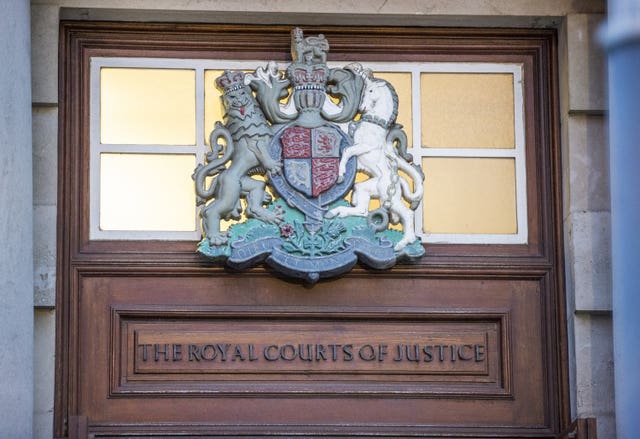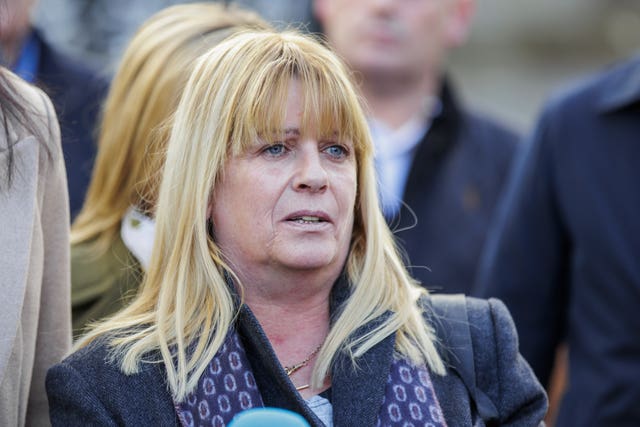
The Government’s controversial Legacy Act cannot “wipe away the tears” of suffering of Troubles victims in Northern Ireland, a court has been told.
Submissions in a legal challenge to the Northern Ireland Troubles (Legacy and Reconciliation) Act at Belfast High Court concluded on Thursday morning after eight days.
High Court judge Mr Justice Colton said it had not been an easy case and pledged to deliver a ruling as soon as he could.

The Act, designed to deal with the legacy of the Troubles, received royal assent in September despite widespread opposition from political parties, victims’ organisations in Northern Ireland and the Irish government.
Aspects of the laws include a limited form of immunity from prosecution for Troubles-related offences for those who co-operate with the new Independent Commission for Reconciliation and Information Recovery (ICRIR).
The new Act will also halt future civil cases and legacy inquests.
The legal challenge, being brought by a number of Troubles victims argued that the Act does not comply with human rights law.

Opening the proceedings last Tuesday, barrister John Larkin KC read from the accounts of a number of Troubles victims whose cases were heard jointly, including Martina Dillon, whose husband Seamus was shot dead in Dungannon in 1997.
Bringing the proceedings to a close on Thursday, Mr Larkin returned to the accounts of the victims who brought the case.
He said they all had unique experiences but shared “an agonising commonality” experienced by many people in Northern Ireland.
Mr Larkin said the victims were at the “heart of this case”.
He then referred to a passage from Virgil, translated by poet Seamus Heaney as “there are tears in things”.
He added: “The experience of the Troubles year by year sadly confirmed and continued to confirm that.
“Legislation is sometimes incapable of ensuring that all tears are wiped away, that is not simply possible.
“But what the applicants collectively seek is not that legislation wipe away their tears, but that legislation will not cause them to weep again and propose, as this Act does, a pretty vicious form of secondary victimisation by shutting out emphatically any prospect of redress, any prospect of justice.”
He concluded: “Your Lordship can stop that vicious secondary victimisation and we respectfully invite your Lordship to do so.”
Mr Justice Colton thanked all the legal representatives in the hearing.
He said: “It is not an easy case, posing difficult issues, but I will give the case priority and try to deliver a judgment as soon as I can.”


Why are you making commenting on The National only available to subscribers?
We know there are thousands of National readers who want to debate, argue and go back and forth in the comments section of our stories. We’ve got the most informed readers in Scotland, asking each other the big questions about the future of our country.
Unfortunately, though, these important debates are being spoiled by a vocal minority of trolls who aren’t really interested in the issues, try to derail the conversations, register under fake names, and post vile abuse.
So that’s why we’ve decided to make the ability to comment only available to our paying subscribers. That way, all the trolls who post abuse on our website will have to pay if they want to join the debate – and risk a permanent ban from the account that they subscribe with.
The conversation will go back to what it should be about – people who care passionately about the issues, but disagree constructively on what we should do about them. Let’s get that debate started!
Callum Baird, Editor of The National
Comments: Our rules
We want our comments to be a lively and valuable part of our community - a place where readers can debate and engage with the most important local issues. The ability to comment on our stories is a privilege, not a right, however, and that privilege may be withdrawn if it is abused or misused.
Please report any comments that break our rules.
Read the rules here